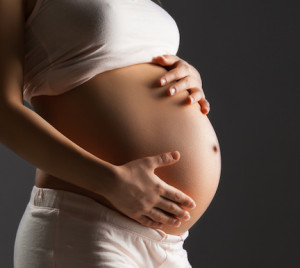 Memory deficit may be related to maternal hypothyroidism during pregnancy.
Memory deficit may be related to maternal hypothyroidism during pregnancy.
It is well-known that thyroid hormone deficiency in children and rodents can adversely affect hippocampal development. Children with congenital hypothyroidism have been shown to have learning and selective memory deficits, along with hippocampus underdevelopment. To take it a step further, maternal thyroid hormone is present and functional in fetal brain tissue during the first trimester of pregnancy, the same time that fetal hippocampal development begins. Whereas, fetal thyroid function is a late-developing mechanism, researchers at the University of Toronto, The Hospital for Sick Children, and Toronto Western Hospital surmised that fetal hippocampal development might be dependent on maternal thyroid hormone, and that a lack thereof might impart hippocampal abnormalities and memory deficit in children. (Willoughby et al., Thyroid 2013.)
The researchers compared hippocampal volume and memory performance in 24 children of mothers who were hypothyroid during pregnancy and 30 children of mothers with normal thyroid function during pregnancy. Children were 9 to 12 years of age. They looked at anterior-posterior hippocampal volumes for adverse effects on different memory functions and assessed the potential correlation between severity of maternal hypothyroidism and offspring hippocampal size and memory function.
Extensive psychological testing of intelligence, reading, attention, executive function and memory; MRI scans for hippocampus volume; and parent questionnaires for demographics, behavior and memory function were compared in children of hypothyroid mothers to those of normo-thyroid mothers. MRI scans allowed slice-by-slice manual tracing of the hippocampi using Analyze. The hippocampal tracings included the cornu ammonis, dentate gyrus and subiculum. On sagittal images, each hippocampus was subdivided at the uncus into anterior and posterior segments, for separate size analysis. Absolute right and left hippocampal volumes were calculated, as well as hippocampal volume relative to total intracranial volume.
Overall, smaller hippocampal volumes were significantly associated with increased thyroid stimulating hormone (TSH) in late gestation. The right hippocampus, in particular, seemed critically dependent on normal thyroid hormone, in both second and third trimesters. While the left hippocampus showed a negative effect only in the third trimester. Children of mothers with severe hypothyroidism in the third trimester had particularly smaller right anterior hippocampi, with the left hippocampus also affected to a lesser extent.
Memory tests did not show significantly reduced function in children of hypothyroid mothers. For the one test on which the hypothyroid group scored lower than the controls, they still scored higher than the normative mean, leading the authors to suggest that other associated brain regions might also be susceptible to low thyroid levels. IQ levels were lower, but not significantly lower, for children of hypothyroid mothers. These children were also more likely to appear confused, forgetful, rambling, and lose train of thought during conversation. The latter effects were not correlated to hippocampal size or severity of maternal hypothyroidism. Nonetheless, the authors strongly emphasized the need to manage maternal hypothyroidism during pregnancy, based upon the definitive correlation between smaller hippocampi and severity of maternal hypothyroidism throughout the study.
Download our Guide to Corpus Callosum Measurement
Tags: Brain Studies AnalyzeDirect
AnalyzeDirect